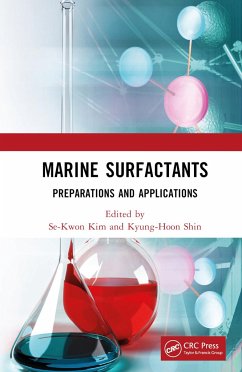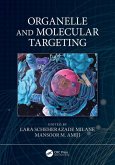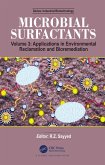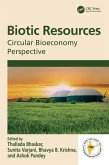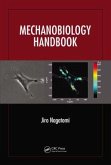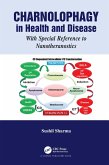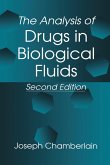Marine Surfactants
Preparations and Applications
Herausgeber: Kim, Se-Kwon; Shin, Kyung-Hoon
Marine Surfactants
Preparations and Applications
Herausgeber: Kim, Se-Kwon; Shin, Kyung-Hoon
- Gebundenes Buch
- Merkliste
- Auf die Merkliste
- Bewerten Bewerten
- Teilen
- Produkt teilen
- Produkterinnerung
- Produkterinnerung
This book explores the development of novel marine biosurfactants. The book also covers the utilization of marine surfactants for biological, biomedical, and environmental applications
Andere Kunden interessierten sich auch für
![Organelle and Molecular Targeting Organelle and Molecular Targeting]() Organelle and Molecular Targeting274,99 €
Organelle and Molecular Targeting274,99 €![Microbial Surfactants Microbial Surfactants]() Microbial Surfactants211,99 €
Microbial Surfactants211,99 €![Biotic Resources Biotic Resources]() Biotic Resources200,99 €
Biotic Resources200,99 €![Mechanobiology Handbook Mechanobiology Handbook]() Mechanobiology Handbook342,99 €
Mechanobiology Handbook342,99 €![Charnolophagy in Health and Disease Charnolophagy in Health and Disease]() Sushil SharmaCharnolophagy in Health and Disease252,99 €
Sushil SharmaCharnolophagy in Health and Disease252,99 €![Mechanobiology of Cell-Cell and Cell-Matrix Interactions Mechanobiology of Cell-Cell and Cell-Matrix Interactions]() Mechanobiology of Cell-Cell and Cell-Matrix Interactions110,99 €
Mechanobiology of Cell-Cell and Cell-Matrix Interactions110,99 €![The Analysis of Drugs in Biological Fluids The Analysis of Drugs in Biological Fluids]() Joseph ChamberlainThe Analysis of Drugs in Biological Fluids394,99 €
Joseph ChamberlainThe Analysis of Drugs in Biological Fluids394,99 €-
-
-
This book explores the development of novel marine biosurfactants. The book also covers the utilization of marine surfactants for biological, biomedical, and environmental applications
Produktdetails
- Produktdetails
- Verlag: CRC Press
- Seitenzahl: 406
- Erscheinungstermin: 20. Dezember 2022
- Englisch
- Abmessung: 229mm x 152mm x 24mm
- Gewicht: 735g
- ISBN-13: 9781032307046
- ISBN-10: 1032307048
- Artikelnr.: 65614722
- Verlag: CRC Press
- Seitenzahl: 406
- Erscheinungstermin: 20. Dezember 2022
- Englisch
- Abmessung: 229mm x 152mm x 24mm
- Gewicht: 735g
- ISBN-13: 9781032307046
- ISBN-10: 1032307048
- Artikelnr.: 65614722
Se-Kwon Kim, Ph.D., is presently working as a Distinguished Professor in Hanyang University and previously Korea Maritime and Ocean University and Research advisor of Kolmar Korea Company. He worked as Professor at Department of Marine Bio Convergence Science and Technology and Director of Marine Bioprocess Research Center (MBPRC) at Pukyong National University, Busan, South Korea. He received his M.Sc. and Ph.D. degrees from Pukyong National University and conducted his postdoctoral studies at the Laboratory of Biochemical Engineering, University of Illinois, Urbana-Champaign, Illinois, USA. Later, he became a visiting scientist at the Memorial University of Newfoundland and University of British Colombia in Canada. Dr. Kim served as president of the 'Korean Society of Chitin and Chitosan' in 1986-1990, and the 'Korean Society of Marine Biotechnology' in 2006-2007. To the credit for his research, he won the best paper award from the American Oil Chemists' Society in 2002. Dr. Kim was also the chairman for '7th Asia-pacific Chitin and Chitosan Symposium', which was held in South Korea in 2006. He was the chief-editor in the 'Korean Society of Fisheries and Aquatic Science' during 2008-2009. In addition, he is the board member of International Society of Marine Biotechnology Associations (IMBA) and International Society of Nutraceuticals and Functional Food (ISNFF). His major research interests are investigation and development of bioactive substances from marine resources. His immense experience of marine bio-processing and mass-production technologies for marine bio-industry is the key asset of holding majorly funded Marine Bio projects in Korea. Furthermore, he expended his research fields up to the development of bioactive materials from marine organisms for their applications in oriental medicine, cosmeceuticals and nutraceuticals. To this date, he has authored around 750 research papers, 70 books, and 120 patents. Kyung-Hoon Shin, Ph.D., is currently Professor at the Department of Marine Sciences and Convergent Technology, and Director of the Institute of Ocean and Atmospheric Sciences, Hanyang University. He received his B.Sc. and M.Sc. degrees from Hanyang University, South Korea, and got his M.Sc. from Nagoya University and Ph.D. degrees from Hokkaido University, Japan. He worked as a research scientist in Frontier Observational Research System of Global Change/International Arctic Research Center, University of Alaska Fairbanks (dispatched from Japan Marine Science and Technology Center, JAMSTEC), and obtained the Outstanding Research Accomplishment Award of Frontier Observational Research System for Global Change/JAMSTEC in 2002. He served as the Editor-in-Chief of the Korean Journal of Ecology and Environment in 2011-2018, and is the Associated Editor of Geochemical Journal, Marine Drugs, and Frontiers in Marine Science, and also served the Guest Editor of Polar Science, and Marine Drugs. Based on his research performance (around 210 research papers, 6 patents), he received numerous academic awards during the last 10 years. He won the best paper award of Korean Society of Oceanography in 2011, the Outstanding Research Academic Award of Korean Society of Limnology, and the Best Paper Award of Korean Federation of Science and Technology Societies in 2012, the Best Academic Award of Hanyang University, the Yeochon Academic Award for Ecology in 2015, and the Best Cited Paper Award of Hanyang University in 2018. His broad scientific interests include stable isotope ecology, marine biogeochemistry, organic carbon cycle, environmental safety and food forensics, organic geochemistry, pollution trace, environmental chemistry and contaminant bioaccumulation, production and fate of bio-toxins.
1. Surfactin and surfactin-like production, purification, and application
at marine environments 2. Marine microbes' surfactants: Future
implementations 3. Marine bacteria surfactants: Bioremediation and
production aspects 4. Rhamnolipids produced by marine microorganism, a
perspective 5. Role of biosurfactant produced by marine microbes in
bioremediation 6. Diversity of marine biosurfactant producing bacteria and
their role in the degradation of heterogenous petrochemical hydrocarbons 7.
Production and characterization of biosurfactant to improve the
effectiveness and bioavailability of insoluble antibiotics 8. Marine algal
and cyanobacterial surface-active compounds 9. The exploitation of marine
biosurfactants in India 10. Advances in biosurfactant production from
marine waste and its potential application in the marine environment 11.
Marine Biosurfactants: Application in agriculture 12. Cosmetic application
of the surfactants from marine microbes 13. Biosurfactants and
nanomaterials for potential marine oil remediation 14. Marine
biosurfactants in environmental bioremediation: scope and applications 15.
Biosurfactant in Oil Spill Clean Up 16. Extensive studies on Fermentative
production of biosurfactant from extremophilic marine microbes
at marine environments 2. Marine microbes' surfactants: Future
implementations 3. Marine bacteria surfactants: Bioremediation and
production aspects 4. Rhamnolipids produced by marine microorganism, a
perspective 5. Role of biosurfactant produced by marine microbes in
bioremediation 6. Diversity of marine biosurfactant producing bacteria and
their role in the degradation of heterogenous petrochemical hydrocarbons 7.
Production and characterization of biosurfactant to improve the
effectiveness and bioavailability of insoluble antibiotics 8. Marine algal
and cyanobacterial surface-active compounds 9. The exploitation of marine
biosurfactants in India 10. Advances in biosurfactant production from
marine waste and its potential application in the marine environment 11.
Marine Biosurfactants: Application in agriculture 12. Cosmetic application
of the surfactants from marine microbes 13. Biosurfactants and
nanomaterials for potential marine oil remediation 14. Marine
biosurfactants in environmental bioremediation: scope and applications 15.
Biosurfactant in Oil Spill Clean Up 16. Extensive studies on Fermentative
production of biosurfactant from extremophilic marine microbes
1. Surfactin and surfactin-like production, purification, and application
at marine environments 2. Marine microbes' surfactants: Future
implementations 3. Marine bacteria surfactants: Bioremediation and
production aspects 4. Rhamnolipids produced by marine microorganism, a
perspective 5. Role of biosurfactant produced by marine microbes in
bioremediation 6. Diversity of marine biosurfactant producing bacteria and
their role in the degradation of heterogenous petrochemical hydrocarbons 7.
Production and characterization of biosurfactant to improve the
effectiveness and bioavailability of insoluble antibiotics 8. Marine algal
and cyanobacterial surface-active compounds 9. The exploitation of marine
biosurfactants in India 10. Advances in biosurfactant production from
marine waste and its potential application in the marine environment 11.
Marine Biosurfactants: Application in agriculture 12. Cosmetic application
of the surfactants from marine microbes 13. Biosurfactants and
nanomaterials for potential marine oil remediation 14. Marine
biosurfactants in environmental bioremediation: scope and applications 15.
Biosurfactant in Oil Spill Clean Up 16. Extensive studies on Fermentative
production of biosurfactant from extremophilic marine microbes
at marine environments 2. Marine microbes' surfactants: Future
implementations 3. Marine bacteria surfactants: Bioremediation and
production aspects 4. Rhamnolipids produced by marine microorganism, a
perspective 5. Role of biosurfactant produced by marine microbes in
bioremediation 6. Diversity of marine biosurfactant producing bacteria and
their role in the degradation of heterogenous petrochemical hydrocarbons 7.
Production and characterization of biosurfactant to improve the
effectiveness and bioavailability of insoluble antibiotics 8. Marine algal
and cyanobacterial surface-active compounds 9. The exploitation of marine
biosurfactants in India 10. Advances in biosurfactant production from
marine waste and its potential application in the marine environment 11.
Marine Biosurfactants: Application in agriculture 12. Cosmetic application
of the surfactants from marine microbes 13. Biosurfactants and
nanomaterials for potential marine oil remediation 14. Marine
biosurfactants in environmental bioremediation: scope and applications 15.
Biosurfactant in Oil Spill Clean Up 16. Extensive studies on Fermentative
production of biosurfactant from extremophilic marine microbes

